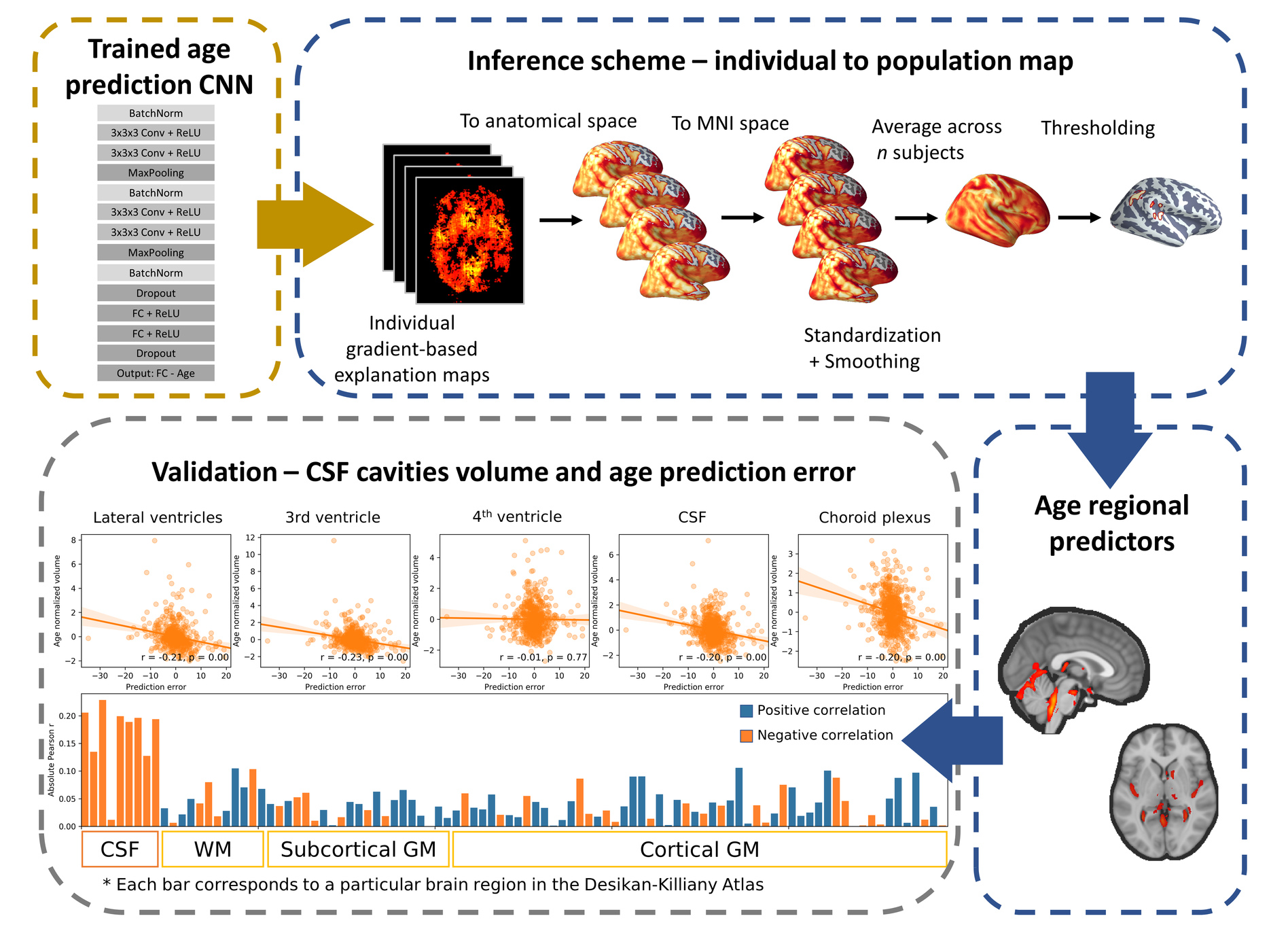How old is your brain? Not necessarily the same age as the chronological age of your body. Past studies have shown that brain aging is related to neurodegenerative diseases and mortality, but what actually makes our brain look younger or older? BGU researchers can now tell you.
The team has developed a deep learning framework based on big data of structural Magnetic Resonance Images (MRIs) for age prediction. Specifically, an ensemble of deep neural networks was trained to predict a subject’s chronological age from brain imaging of healthy subjects. Once trained, the network ensemble was able to give an accurate prediction of age to within three years, thus cutting through the clutter of existing methods. The algorithm was applied to 15 open source datasets comprising more than 10,000 MRIs in total of people aged 4-94.
Another unique aspect of the study is that the researchers were also able to examine which anatomical brain regions contributed to the high predictive power of the neural network model.
This was done by developing an inference scheme based on multiple “explanation maps”, spatial maps that assign a measure of the importance of each brain region to the prediction. These maps were combined across subjects, thus creating a reliable population-based, rather than a subject-specific map. Such maps were able to identify the ventricles and cisterns, previously found as general atrophy markers, as the most important in predicting brain age. These novel findings open up interesting avenues for future research.
"Our method introduces the possibility that brain age and its divergence from the chronological age could be used as an early brain health biomarker. This would help us trace the brain's development and give us early warning of diseases, which are essential steps toward developing effective treatments. Additionally such a biomarker would provide further insights into what happens when diseases affect the brain”, say team members.
The multidisciplinary research group includes Gidon Levakov, a Ph.D. candidate who led the study as well as Dr. Gideon Rosenthal, a former BGU student, both from the Department of Cognitive and Brain Sciences, Prof. Ilan Shelef of the Department of Diagnostic Imaging, Dr. Tammy Riklin Raviv of the School of Electrical and Computer Engineering and Prof. Galia Avidan of the Departments of Psychology and Cognitive and Brain Sciences. All are also members of the
Zlotowski Center for Neuroscience.
Media Coverage:
JPost